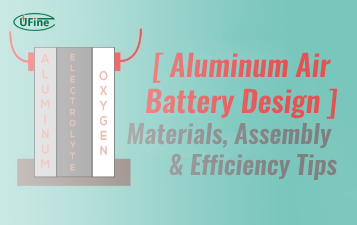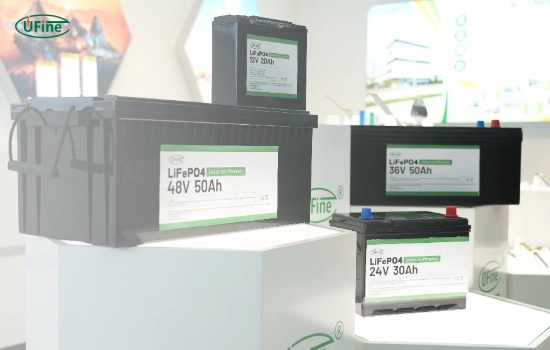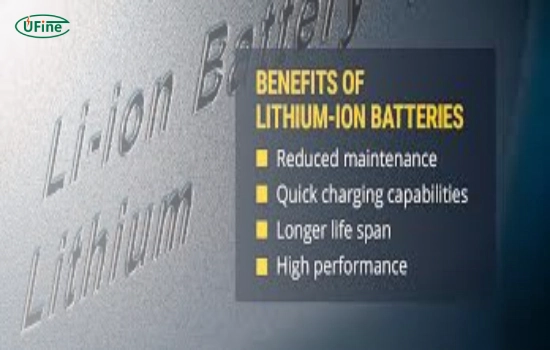Choosing the right lithium-ion forklift battery ensures efficient and productive material handling operations. With the increasing popularity of lithium-ion technology in the forklift industry, it’s essential to understand the key factors to consider when selecting a battery that meets your specific needs. This comprehensive guide will walk you through choosing the perfect lithium-ion forklift battery.
Part 1. Understanding lithium-ion forklift batteries
Lithium-ion forklift batteries are becoming increasingly popular in the material handling industry due to their numerous advantages over traditional lead-acid batteries. These batteries offer higher energy density, faster charging times, and longer lifespan, making them an attractive option for businesses looking to improve efficiency and productivity.
Part 2. Factors to consider when choosing a lithium-ion forklift battery
Forklift Specifications
The first step in choosing a lithium-ion forklift battery is to determine the specifications of your forklift. This includes the voltage, capacity, and dimensions of the battery compartment. Selecting a battery compatible with your forklift model ensures a perfect fit and optimal performance.
Application Requirements
The type of application you use your forklift for will significantly influence the choice of the right lithium-ion battery. It would help if you considered load weight, lift height, and travel distance. Heavier loads, higher lifts, and longer routes require a higher-capacity battery to ensure continuous daily operation.
Charging Infrastructure
Another important consideration is your existing charging infrastructure. Lithium-ion batteries often charge faster and require no cool-down period, so ensuring your chargers are compatible with the new battery technology is essential. Choosing a battery compatible with your existing charging system can help you save on infrastructure costs.
Maintenance Requirements
One of the main advantages of lithium-ion forklift batteries is their low maintenance requirements. Lithium-ion batteries do not require regular watering or equalization charges, unlike lead-acid batteries. However, it’s still essential to follow the manufacturer’s recommendations for maintenance to ensure optimal performance and longevity.
Part 3. What are the main benefits of using lithium-ion forklift batteries over lead-acid batteries?
Lithium-ion forklift batteries offer several key advantages over traditional lead-acid batteries:
- Higher energy density: Lithium-ion batteries can store more energy per unit of weight, allowing for longer runtimes and heavier loads.
- Faster charging times: Lithium-ion batteries can be charged much faster than lead-acid batteries, reducing downtime and increasing productivity.
- Longer lifespan: Lithium-ion batteries typically last 2,000 to 5,000 charge cycles, significantly longer than lead-acid batteries.
- Lower maintenance requirements: Lithium-ion batteries do not require regular watering or equalization charges, reducing maintenance costs and time.
Part 4. Selecting the right lithium-ion forklift battery
Voltage and Capacity
When selecting a lithium-ion forklift battery, it’s essential to choose the right voltage and capacity based on your forklift’s specifications. Voltage determines the battery’s power output, while capacity determines the runtime. Higher voltage and capacity batteries are typically used for heavier loads and longer runtimes.
Dimensions and Fit
The dimensions of your forklift’s battery compartment are crucial when selecting a lithium-ion battery. To ensure a secure fit and optimal performance, choose a battery that fits snugly into the compartment. Some manufacturers offer custom-engineered batteries to fit specific forklift models.
Safety Features
Safety should always be a top priority when choosing a lithium-ion forklift battery. Look for batteries with built-in safety features such as overcharge protection, over-discharge protection, and short-circuit protection. These features help to prevent accidents and ensure the safety of your employees and equipment.
Warranty and Support
When purchasing a lithium-ion forklift battery, it’s essential to consider the warranty and support offered by the manufacturer. Look for batteries with a comprehensive warranty covering defects in materials and artistry. Also, choose a manufacturer that offers reliable customer support if you have any questions or issues with your battery.
Part 5. How does the cost of lithium-ion forklift batteries compare to traditional lead-acid batteries?
Lithium-ion forklift batteries have a higher upfront cost than lead-acid batteries. However, their longer lifespan and lower maintenance requirements can result in significant cost savings over time. Lithium-ion batteries can be more cost-effective in the long run when considering the total cost of ownership. Lithium-ion batteries’ higher energy density and faster charging times can increase productivity and efficiency, further reducing operational costs.
Part 6. FAQs
-
How long do lithium-ion forklift batteries last?
The lifespan of a lithium-ion forklift battery can vary depending on several factors, such as usage, maintenance, and environmental conditions. However, on average, lithium-ion batteries can last 2,000 to 5,000 charge cycles, significantly longer than lead-acid batteries. -
Can lithium-ion forklift batteries be opportunity charged?
Lithium-ion forklift batteries can be opportunity-charging, which means they can be charged in short bursts during breaks or idle time. This allows for continuous operation throughout the day without needing battery swaps. However, it’s essential to follow the manufacturer’s recommendations for opportunity charging to prevent damage to the battery. -
How do I maintain a lithium-ion forklift battery?
Maintaining a lithium-ion forklift battery is relatively simple compared to lead-acid batteries. Key maintenance tasks include keeping the battery clean, ensuring proper charging procedures, and avoiding deep discharges. It’s essential to follow the manufacturer’s recommendations for maintenance to ensure optimal performance and longevity. -
Can lithium-ion forklift batteries be used in extreme temperatures?
Lithium-ion forklift batteries are generally more tolerant of temperature extremes than lead-acid batteries. However, it’s still important to consider the operating environment when selecting a battery. Extreme heat or cold can impact battery performance and lifespan. Look for batteries designed to withstand your facility’s temperature conditions. -
What does the number on a forklift battery mean?
The number on a forklift battery tells you its size and power. It shows the voltage, the number of cells, and the capacity. For example, a 24V battery has 12 cells, and each cell is 2 volts. This helps you know how strong the battery is. -
What is the difference between 80V and 48V forklift battery?
The difference between 80V and 48V forklift batteries is the power they provide. An 80V battery gives more control and is used for heavier forklifts. A 48V battery is smaller and is for lighter
Related Tags:
More Articles

Aluminum Air Battery Design: Materials, Assembly & Efficiency Tips
An aluminum air battery uses aluminum and air to generate power. Learn its materials, assembly steps, and tips to boost energy output and efficiency.
7 Advantages of a Heated Lithium Battery in Cold Climates
Looking to power batteries in freezing temps? Heated lithium batteries excel in cold climates. Here are 7 key benefits and how they work.
How to Choose the Best Floor Scrubber Battery for Commercial Cleaning?
Selecting the ideal floor scrubber battery ensures a long runtime, rapid charging, and minimal maintenance for efficient commercial cleaning operations.
Battery for Blower vs Battery for Leaf Vacuum: Which One Should You Choose?
Battery for blower vs leaf vacuum—learn the key differences in power, fit, and runtime to choose the right battery for your outdoor tool needs.
How to Choose the Right Battery for Blower?
Choosing the right blower battery? Consider voltage, capacity, chemistry & usage. This guide helps match the best battery for peak performance.





